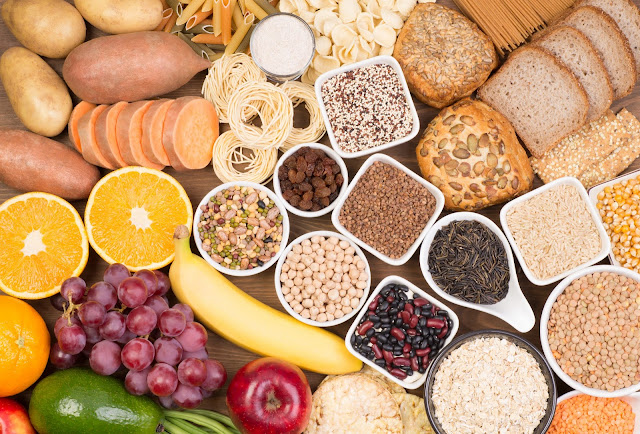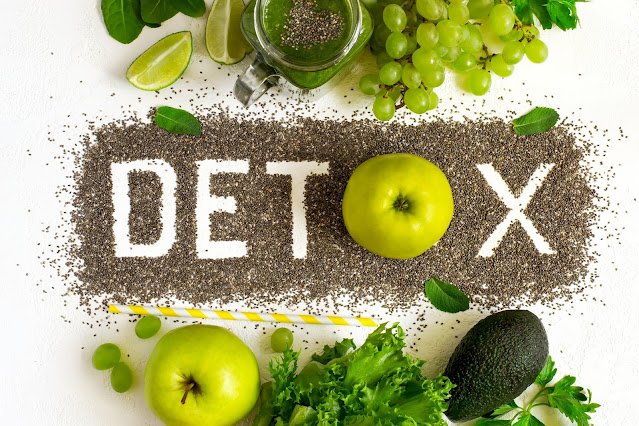As a nutritionist, I've heard and seen a lot of myths about diet and weight loss. When you're trying to lose weight, you may come across several myths. Sometimes, due to the lack of enough knowledge, you end up following several weight loss practices that do not have a scientific explanation. Hence, it's very important to sort facts from fiction before you believe anything.
Here are common weight loss myths that may be sabotaging your weight loss plans:
1. Carbs are unhealthy
Do carbs make you fat? No. Carbs are not the enemy. Throughout history, carbohydrates have been portrayed as bad for your health. No one food or macronutrient is responsible for weight gain. In fact, your body needs carbs to produce energy for your cells, which is important for performance and recovery, as well as for hormonal reasons.
In other words, people who are successful with "low-carb" diets usually do it by cutting out sugary and processed foods, not because they gain weight from whole carbohydrates.
Therefore, when including carbs in your diet, it's best to opt for fruits and vegetables, whole grains, and legumes. These will help keep your blood sugar stable while optimizing overall health.
2. Eating at night causes weight gain
This is one of the most common weight loss myths. People who eat late at night do tend to put on extra weight. In addition to eating late at night, late-night eaters may tend to choose high-calorie snacks. As long as you manage your food intake and keep track of what you are eating, it doesn't matter when you eat. Despite the myth that late-night eating causes weight gain, there is no evidence that it does.
Simply put, if you eat more calories than you burn, you'll put on weight. If you eat fewer calories, you'll lose weight. The time of day you consume those calories doesn't really matter. However, eating too close to bedtime can cause indigestion and sleeping problems. Therefore, it's important to be cautious when consuming food at night. To control your hunger after dinner, opt for healthy options like low-fat yogurt or baby carrots.
3. It doesn't matter what you eat as long as you count calories
In many cases, people believe that as long as they stay within a certain number of calories every day, they are eating healthily. This myth can get in the way of eating a balanced, nutritious diet. For example; you can’t compare 100 calories from a banana to 100 calories from a pizza or soda. Banana contains a high source of fiber and potassium, whereas a slice of pizza or soda is loaded with sugar and saturated fat. Also, regular consumption of these has been associated with an increased risk of obesity and type 2 diabetes. Therefore, all calories are not the same. it's very important to be aware of what you are consuming when trying to lose weight.
4. Cutting fat from your diet aids weight loss
This is another common weight loss myth. Weight loss or improving your health doesn't require you to avoid all fats. A healthy diet should include fat as it provides essential nutrients. However, fats have more calories per gram than protein or carbs, so you should limit them to prevent extra calories. Eating small amounts of foods with healthy fats, such as avocados, olives, or nuts, may help you lose weight.
5. Skipping meals aids in weight loss
In order to lose weight, skipping meals is not a good idea, because you will simply overeat at the next meal. Skipping meals can slow the body's metabolism down and cause it to retain fat. This can also lead to nutrient deficiencies and long-term health problems, along with an increase in cravings and a negative impact on your mental health.
Instead, to avoid extreme hunger and to maintain a healthy metabolism, eat balanced meals and wholesome snacks throughout the day, including fruits and veggies. Always pay attention to your body and consume when you are hungry because overeating is more likely to happen when meals are skipped.
6. Fad diets work
If you've been trying to lose weight for a while, you might be thinking about trying one of the many fad diets that guarantee rapid weight loss. Sadly, not all diets are made equal, and some of these popular diets encourage false beliefs about how to lose weight.
For example; Fad diets like a juice cleanse and food replacements with liquids are well-known as common ways to attempt weight loss. There is not enough evidence to prove that these fad diets do any of the things they promise to do. The truth is that you can detoxify your body without buying anything. Every day, your liver, kidneys, and digestive system effectively detoxify your body. Every now and then, juice and shakes can be a good choice, but both should be supplemented with nourishing whole foods.
In conclusion, a sustainable healthy diet combined with exercise is generally a more effective strategy for weight loss. Always keep in mind that we are all unique and that there is no one optimal strategy. What works for someone might not work for others. It will differ from person to person depending on multiple factors, including age, physical activity, gender, medical conditions, and more. Optimal nutrition is a very personal lifestyle choice. Asking yourself questions like what foods you appreciate, what dietary changes are sustainable, and what level of activity you'll maintain will help you make sure that the changes you make to your diet will last a lifetime and produce lifelong results.







Comments
Post a Comment